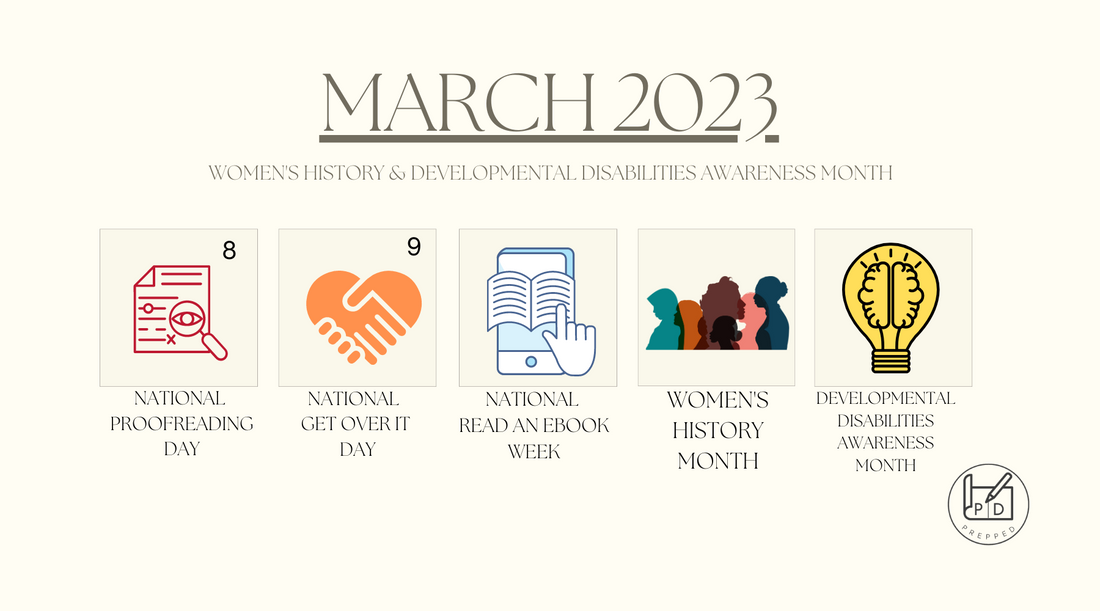
Week 2 Ideas - MARCHing on
This week we will look at how National Proofreading and Get Over It Day, Read an E-Book Week, and of course Women's History and Developmental Disabilities Awareness Months provide excellent opportunities to model engaging classroom activities.
National Proofreading Day is on March 8th so grab some red pens! Just kidding. Consider walking your staff through a quick tutorial on Grammarly to use with parent letters, resume submissions, or grant applications. To combine efforts with last week's National Speech & Debate Education Day, hold a debate on a grammar topic such as "to use the Oxford comma or not." Or, if you have a lot of teachers applying for jobs, show your support by telling them to break out their resumes and pitch in to help them edit away.
National Get Over It Day is on March 9th and as we all know, conflict on campuses and in communities is inevitable. Hold a training on conflict resolution and teach your staff the communication principals and compromise protocols they need to succeed in conflict resolution with parents, staff, and yourself. Check out my half day training full of role plays and case studies, 'Becoming Peacemakers,' or source or prepare one for your staff.
National Read an E-Book Week is this week. This is another opportunity for debate amongst your staff as E-Books are teachers frequently have a love or hate relationship here. Ask some teachers to share how they use e-books in their instructional day or do a quick e-book study together on a topic of relevance for your staff.
This month we celebrate Women's History. Engage your staff members all month long with, "Do you know when women..." a timeline activity that moves from simple to advanced to self-directed. Have some teachers share what activities or research projects they are having students complete during this time to increase their knowledge of women's history.
This month we also celebrate Developmental Disabilities Awareness Month so encourage the local diagnostician to present alongside SpEd staff on characteristics of developmental disabilities and the process for testing, diagnosis, and available services. If anyone is willing to share their personal experience with their own developmental disability, this could be a fitting time.
I hope these ideas benefit you and your staff and as always, have fun creating learning experiences that last!